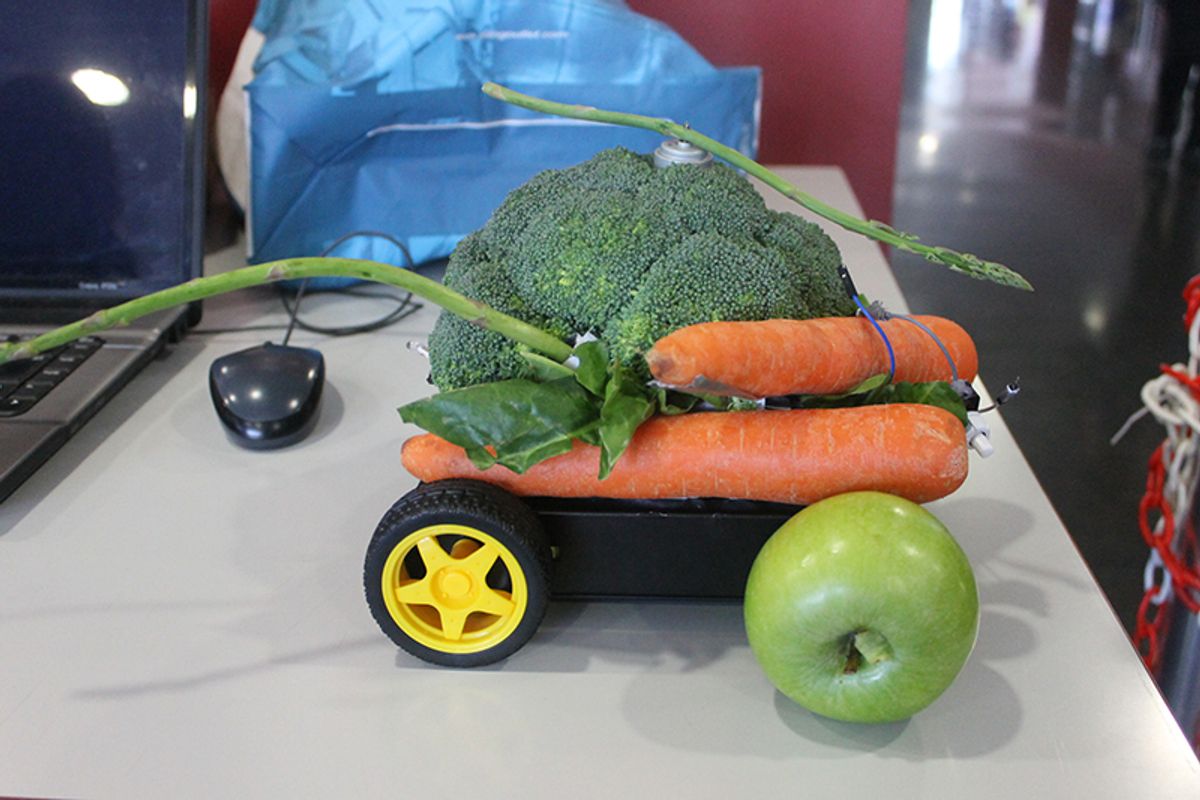Most of the robot competitions we cover are serious business. Roboticists spend months (or years) and thousands (or millions) of dollars building and programming their robots to navigate through simulated disaster areas, solve complicated tasks that most people don’t really understand, or just beat the stuffing out of each other.
Building the best robot you can is difficult and stressful. You know what isn’t difficult or stressful? Building the worst robot you can, and then seeing if it can manage to be even more terrible than a bunch of other robots trying to do the same thing. This is Hebocon, and we love it.

In Japanese, “heboi” means “poor in quality,” “poor in ability,” or simply “crappy,” “embarrassing.” Hebocon, then, is a contest for heboi robots made by heboi people, and we’re all heboi people from time to time. From the official description:
All the entrants are people who neither have the technical expertise, determination, nor the focus it takes to build an actual robot. That is why the robots in this contest can barely even move forward, and why they put on stunningly crappy sumo matches.
The 2016 Hebocon World Championship was held in Japan last August, but they only managed to put together the highlight video this month (heboi people, remember?). It’s an 11-minute video, but it’s worth watching ALL of it, because the robots are fantastic, and so is the commentary:
Hebocon was founded by Daiju Ishikawa, who runs a website called Daily Portal Z that posts articles exploring things like all of the different ways that a piece of cheese can be placed in proximity to a hamburger in the context of English prepositions (there are 30). When doing these kinds of experiments, there were, as you might expect, lots of failures.

“I realized that the way people fail in engineering is very interesting and entertaining,” Daiju told us through a translator. “Hebocon started when I wanted to see more failures and bad works.” The first Hebocon took place in 2014, and just like the 2016 competition, it was full of both of those things.
For those of you who want to get involved with crappy robots of your own, we asked Daiju for some tips:
IEEE Spectrum: What are some ways of making a very crappy robot?
Daiju Ishikawa:First, think about the function (movement, attack method, appearance, etc.) that you want to create. Do not think about difficulty or feasibility. Just follow your intuition to buy simple materials or look for things that you have around the house. Do not spend time on a detailed design: Just assemble it based on the idea that “in this way, it should move.” If it does not move, fix it, slightly. If you get tired of working on it, that means you’re done!
If someone has a lot of experience building robots, how should they try to build a robot for Hebocon?
Here are some ideas:
- Try combinations that you would never do at work, like making a propeller with dried squid rather than plastic or metal;
- Avoid technology that you’re familiar with. Do not use a soldering iron, or other tools;
- Make it with your left hand (if you are right-handed);
- Make it with your feet;
- Leave the most important part to a 5-year-old child to make it for you.
The important thing is to give priority to being heboi (crappy) over success, and also have fun, build something that is funny.
What future plans do you have for Hebocon?
I’m planning several events this year in Japan, and I’d like to hold a world competition at the same time as the Tokyo Olympic Games in 2020. I want people around the world to hold Hebocons more easily and casually: Big competitions as well as small competitions at home with friends. Anyone can participate regardless of age or gender or education, and I hope Hebocon will be for everyone.
[ Hebocon ]
Evan Ackerman is a senior editor at IEEE Spectrum. Since 2007, he has written over 6,000 articles on robotics and technology. He has a degree in Martian geology and is excellent at playing bagpipes.



